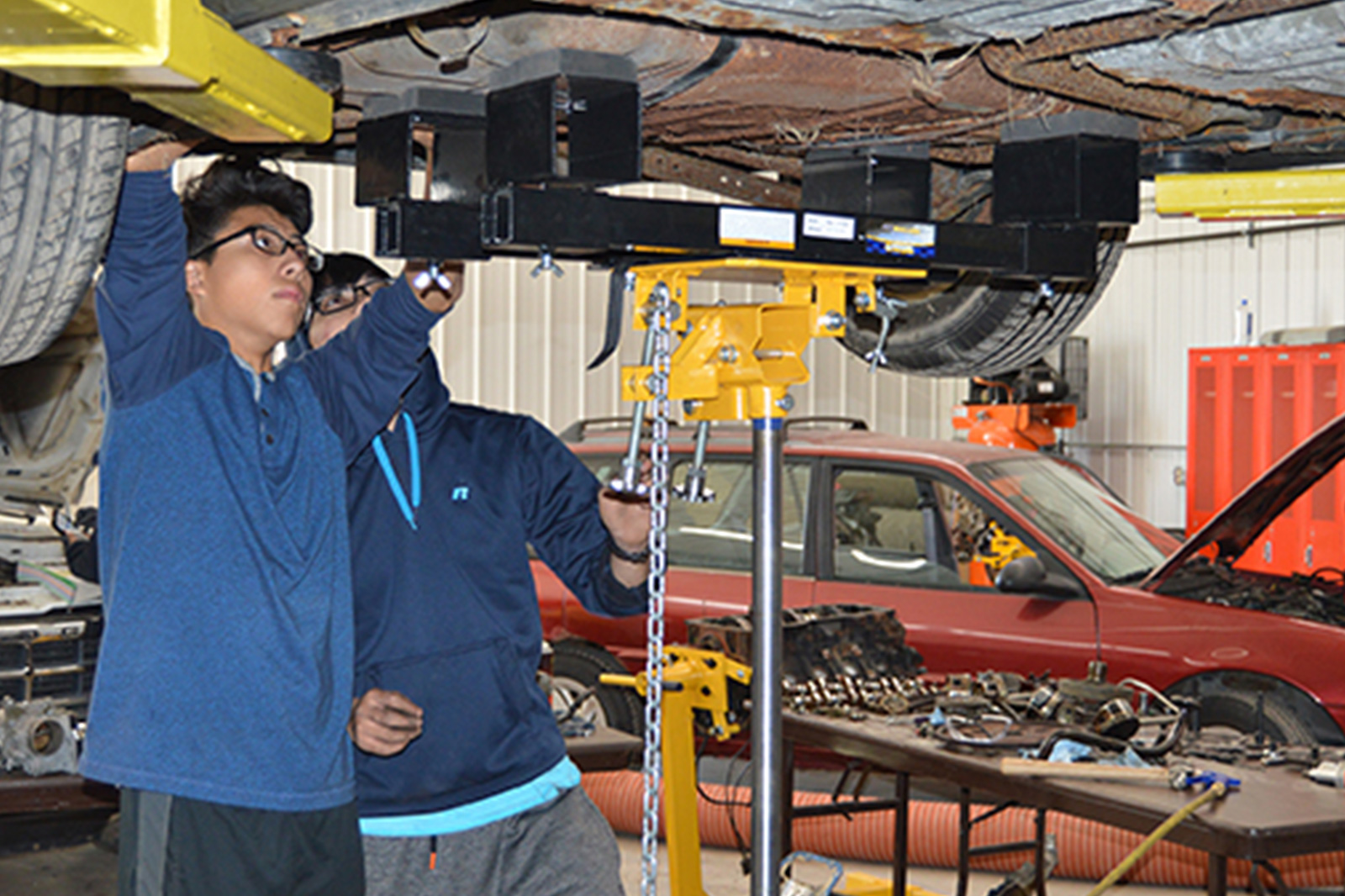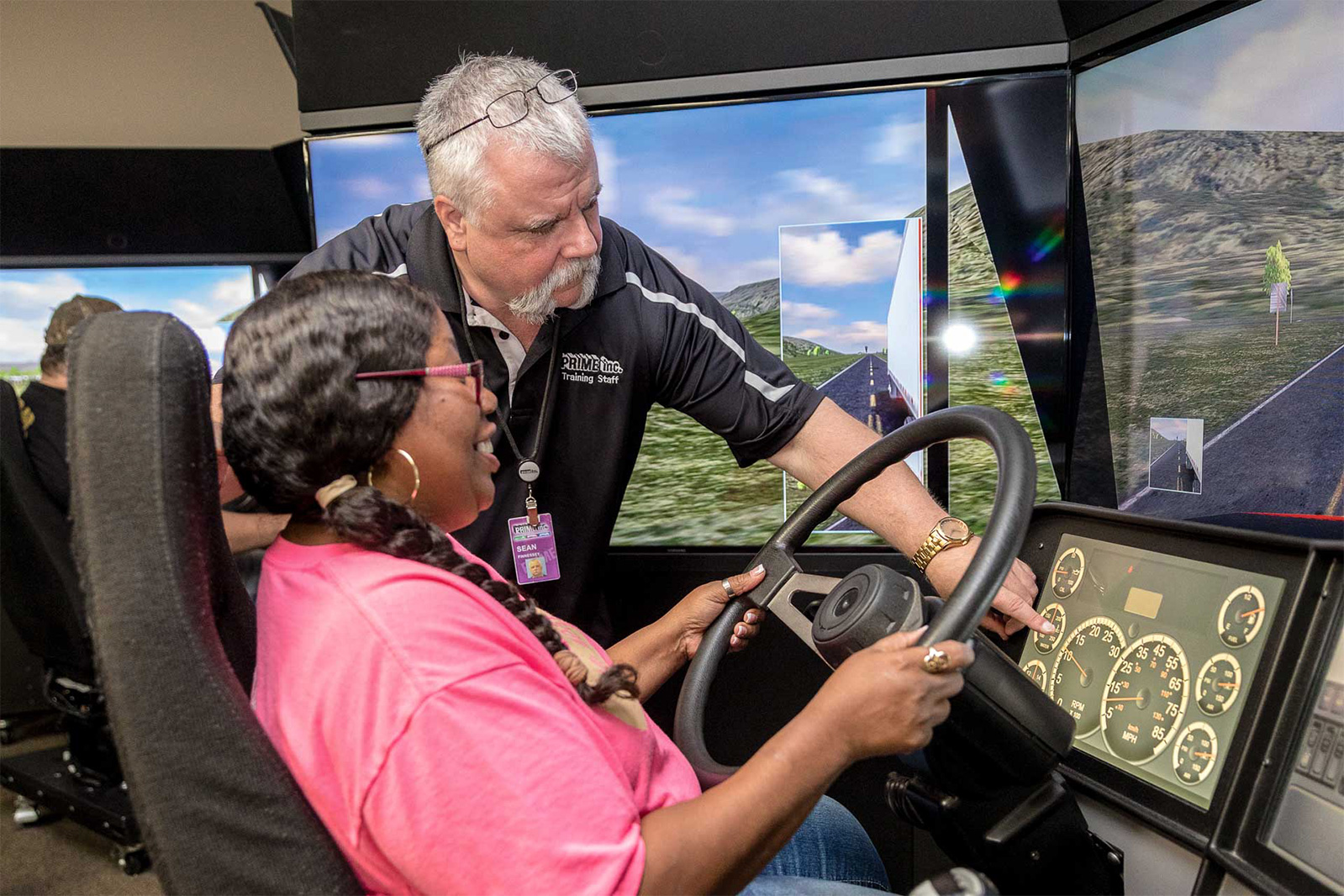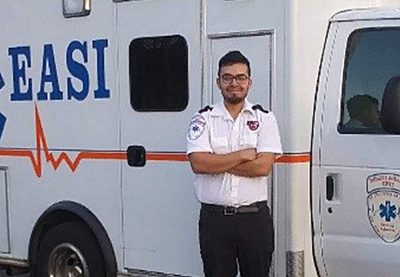
NATIONAL FARMWORKER JOBS PROGRAM
Training is your ticket to SUCCESS!

Background
The National Farmworker Jobs Program (NFJP) is a United States Department of Labor (DOL) funded and directed program that provides job training and employment assistance to migrant and seasonal farmworkers (MSFW’s). It is authorized by Congress in Section 167 of the Workforce Innovation and Opportunity Act (WIOA) to address the chronic unemployment and underemployment experienced by MSFW’s who primarily depend on jobs in agriculture. Since its inception with the passage of the Economic Opportunity Act of 1964, the NFJP and its previous interactions has been an integral part of the national workforce strategy. MSFW’s now access the NFJP and other employment assistance through the American Job Center Network (AJCN) of the workforce system. Arkansas Human Development Corporation (AHDC) is funded by the DOL to coordinate and facilitate NFJP services in Arkansas.
Goal
The goal of the NFJP is to assist MSFW’s and their families to attain greater economic stability by helping them to acquire new job skills in occupations that offer higher wages and a more stable employment outlook. AHDC coordinates needed training through community and technical colleges and a host of private training organizations around the state. The NFJP also provides supportive services that help farmworkers remain in and stabilize their employment in agriculture. A state-wide network of vendors provides housing, medical, emergency, nutritional and childcare assistance on a reimbursement basis. AHDC also facilitates the coordination of services through the American Job Center Network (AJCN) system for MSFW’s so they can access other services available through the workforce system.


Target Population
The NFJP serves eligible migrant and seasonal farmworkers and their dependents. Eligible farmworkers are those who primarily depend on employment in agricultural or fish farming labor that is characterized by chronic unemployment and underemployment and face multiple barriers to economic self-sufficiency. To be eligible for participation in the NFJP a person must meet the following criteria:
- Be a citizen of the United States or legally authorized to work in the United States;
- Performed agricultural labor in an occupation recognized by the United States Department of Labor;
- Earned at least 50% of his/her income from recognized agricultural labor during any consecutive 12-month period within the 24-month period immediately preceding the date of application;
- Earned less than poverty guidelines based on size of family; and
- Registered with Selective Service if a male born on or after January 1, 1960.
Services
Basic Career Services – Includes skills assessments, job search, eligibility determination and access for MSFW’s to the other core services of the local One-Stop Career Center.
Individualized Career Services – Include comprehensive assessment, individualized employment plan (IEP), career planning, internships, placement assistance, and work experience linked to careers.
Training Services – Include occupational skills and job training, work experience, and employment readiness, which also encompasses on-the-job training and classroom skills training.
Related Assistance Services (Support Services) – Any services provided to an individual already enrolled in career or training services enable the individual to participate in this service. (Non-Supportive Services) Include short-term direct assistance to address an urgent or life threatening matter enable farmworkers and their family members to retain their agricultural employment or to participate in Intensive or Training Services activities. The costs may be borne by grant funding when local community resources are not available.
Funding
Approximately $1,144,067.00 is available annually to provide outlined services.

SUCCESS STORY: Meet Brayan Vazquez

Brayan Vazquez is the fourth of five children born to a seasonal farm worker. His father, Mr. Greg Vasquez, was a welder in Mexico. They moved to the United States in 1988 to make better lives for themselves and the children they would have.
When the Vazquez’s came to the United States Greg could not speak English at all and working in the cotton fields in Texas was the only job he could find. He worked long hours to provide for his family. Eventually, as he gained experience, he was allowed to drive the farm equipment as well. Mrs. Vazquez had been a nurse in Mexico but her license was no good in the U.S. so Greg worked extra hard to keep her out of the fields. Mr. Vazquez said he worked so hard to make his kids’ lives better than his.
As each son became old enough they started doing farm work. Brayan was born in America and attended school in Arkansas and is well educated in English. Mr. Vazquez took Brayan to the fields to work when he was fifteen years old. After one week laying poly pipe for irrigation he told his father, “I’m not going to do this all my life, I’m going to do something else. Adios!
Brayan started thinking of what he might like to do, and contacted Arkansas Human Development Corporation (AHDC). His first thought was the military but his sister had received assistance from AHDC to attend nursing school and encouraged Brayan to get his Licensed Practical Nursing (LPN) degree. Nursing really didn’t interest him either. He attended a meeting at the community college on the different classes offered and decided to try Emergency Medical Technician (EMT). The first day of class one of the speakers made the statement, “and some of you will not complete” and looked Brayan straight in the eye. Brayan said to himself, “you watch me!” That made him even more determined to succeed.
Brayan came to the NFJP office in Dumas, Arkansas to see if he qualified for assistance. Since Brayan was the dependent of an agricultural worker he was determined eligible and started classes at the University of Arkansas Monticello at McGehee. He got discouraged but the instructor worked with him so well that he did not stop with at EMT but also completed his Paramedic License. It was very hard work going to classes as well as working long hours in clinical at a nursing home but he said, “It was well worth it to be doing something I enjoy”.
After graduation Brayan took a couple of months to rest. He is now working at Emergency Ambulance Services, Inc., in Pine Bluff, Arkansas, working sometimes 75 to 80 hours a week and making $14.00 an hour. Brayan sent a thank you card to AHDC Employment Specialist, Ms. Sharon Burns that said, “Thank you so much for the support and great amount of help.” It was well received.
YEARS OF EXPERIENCE
SATISFIED CUSTOMERS









